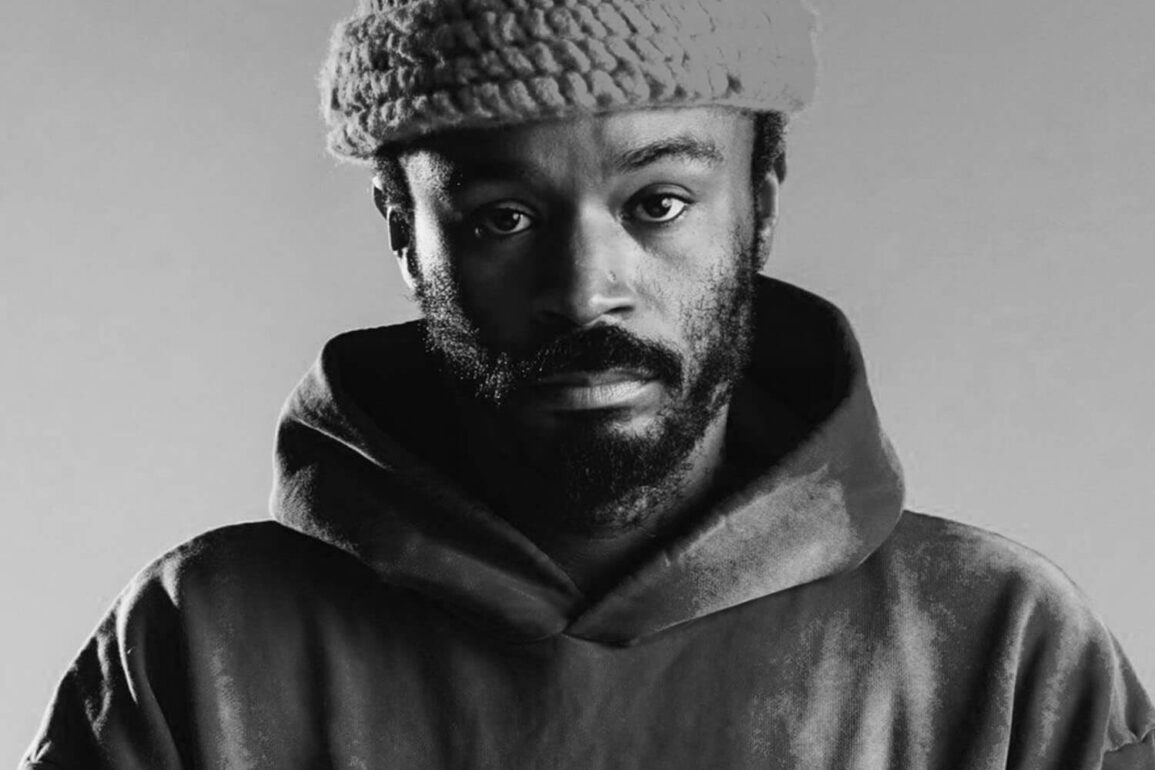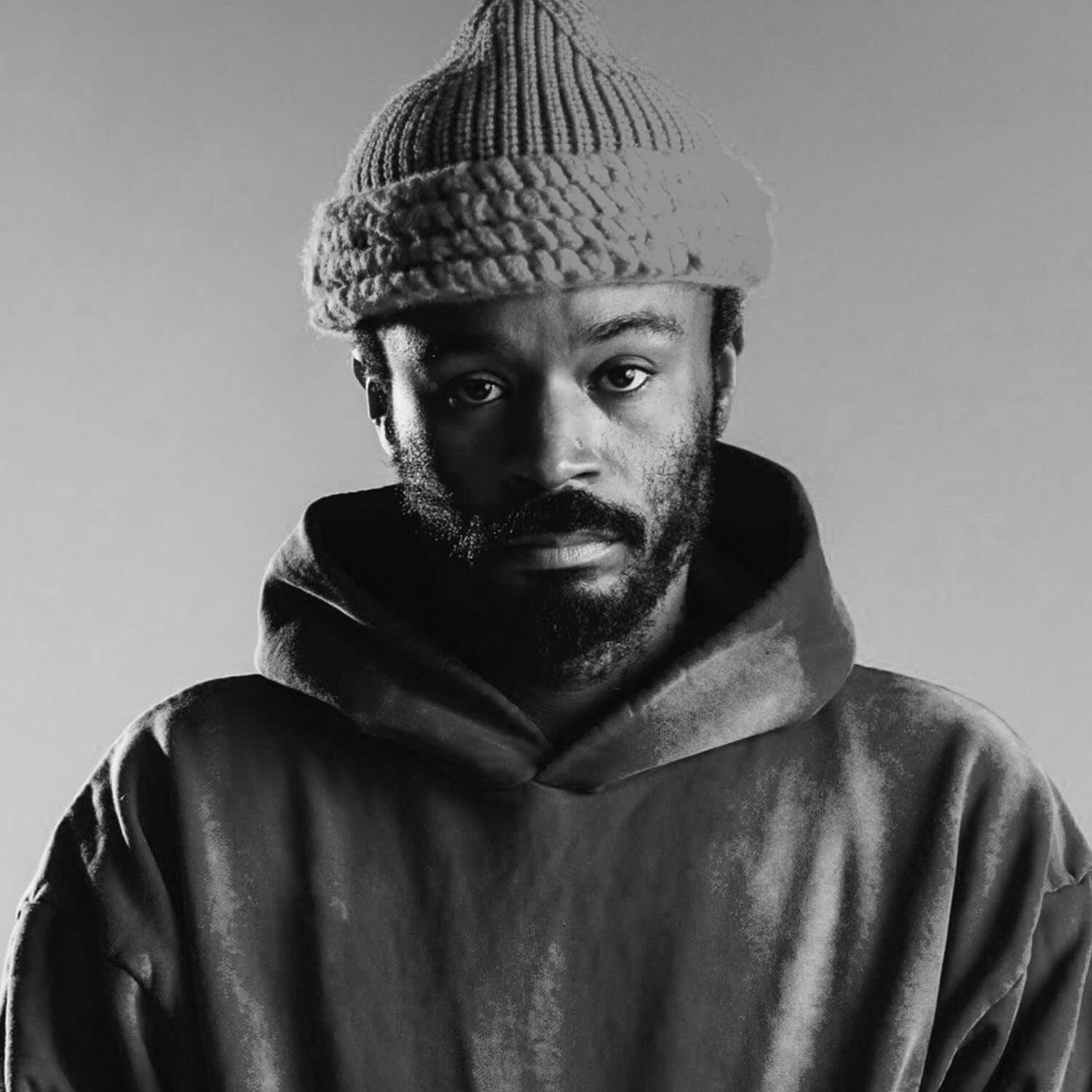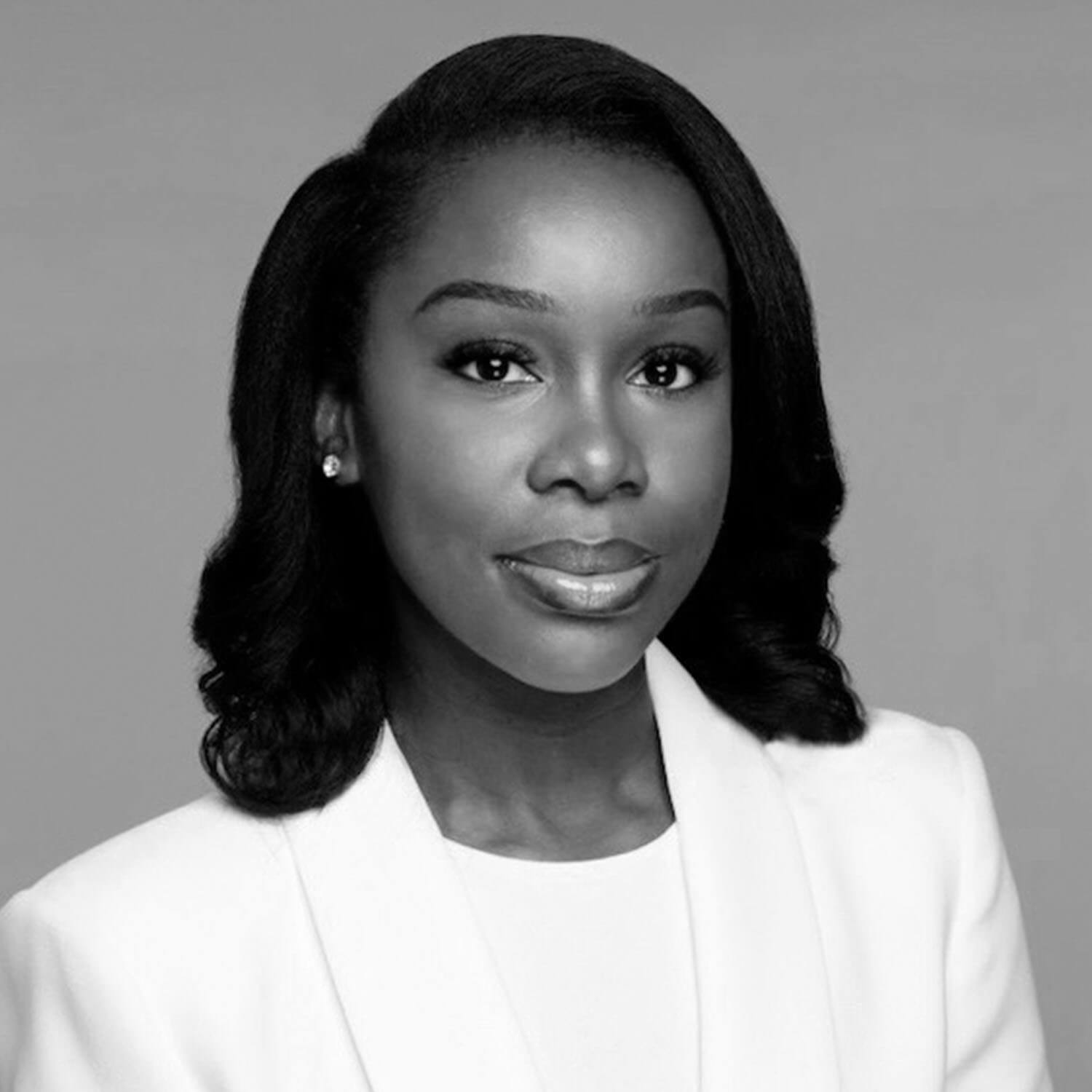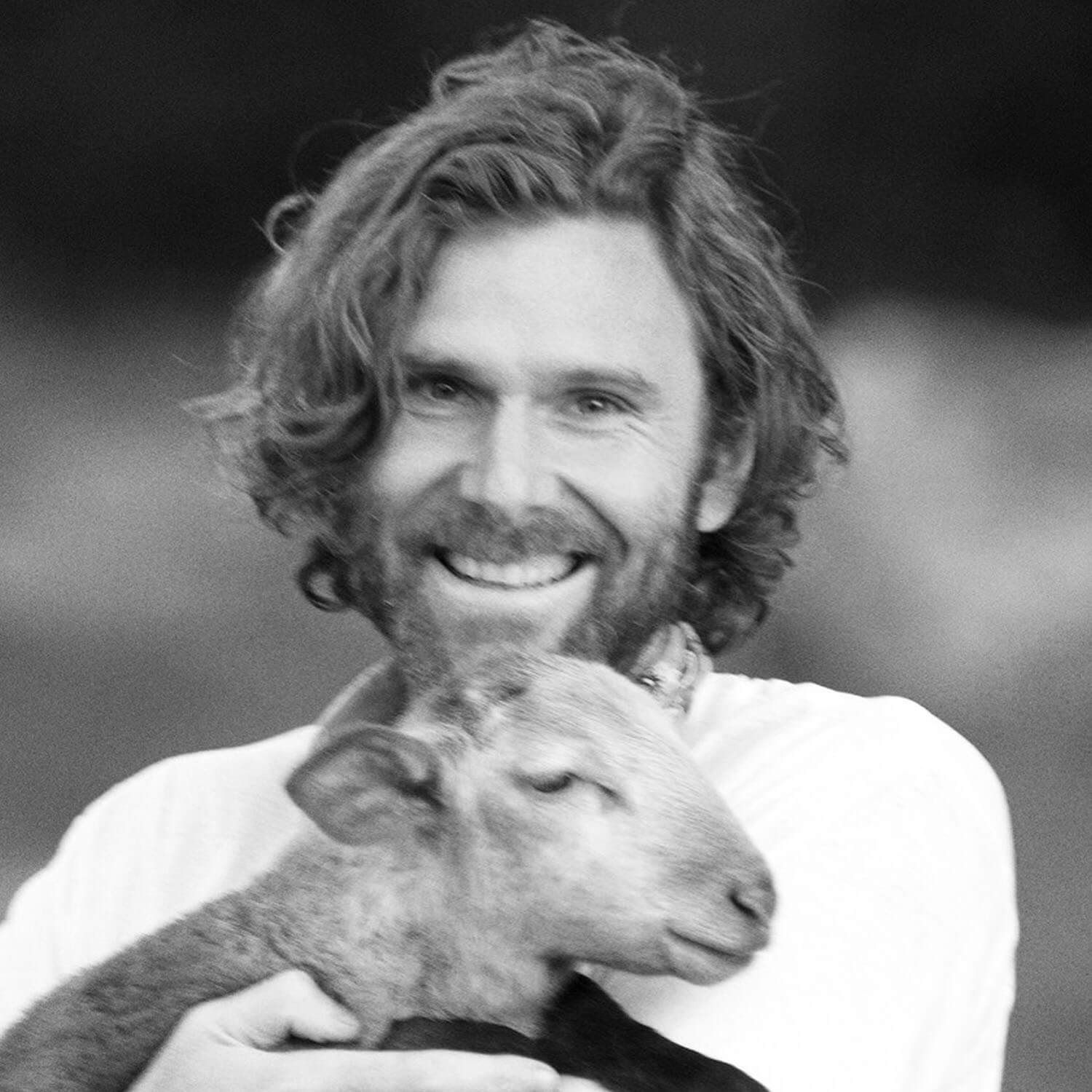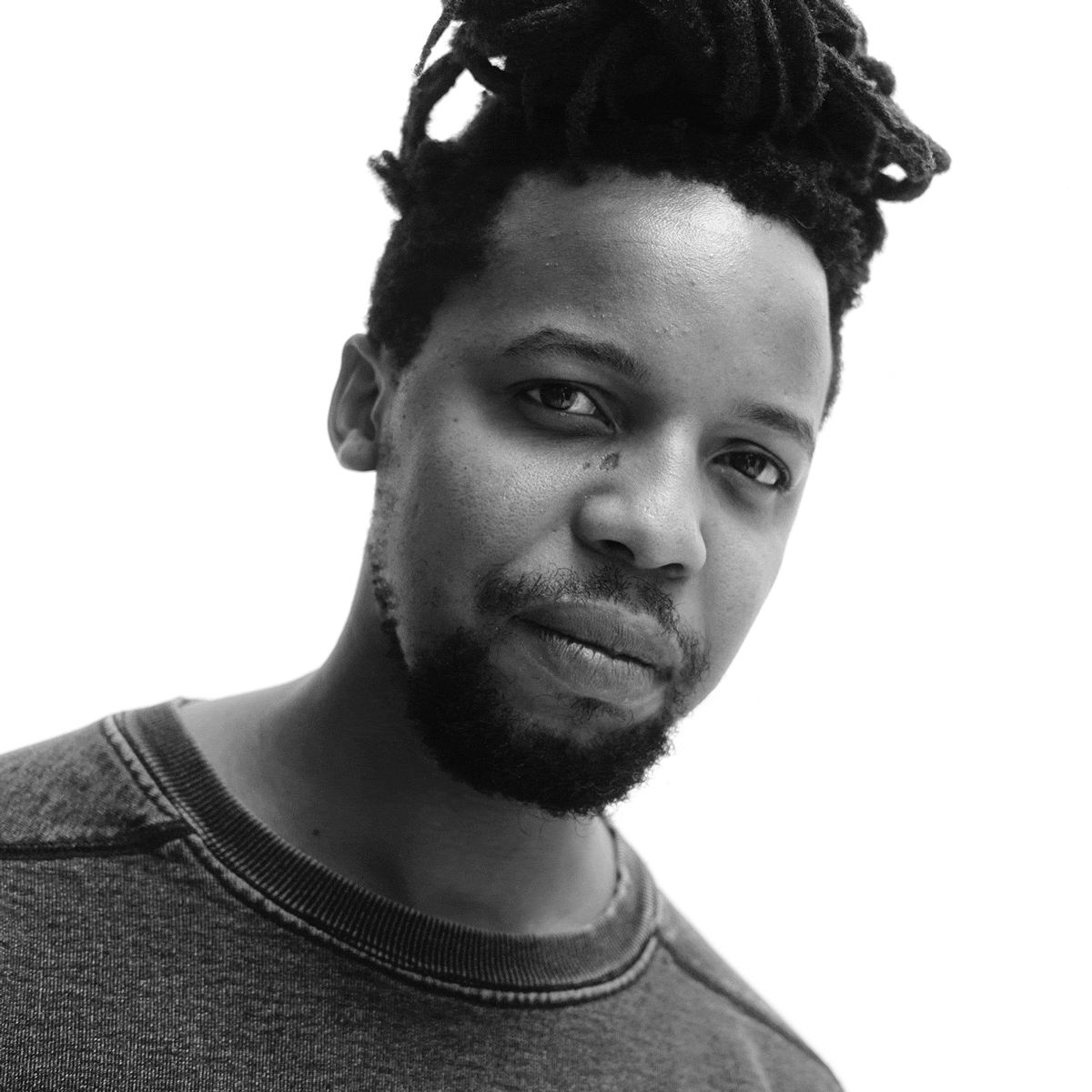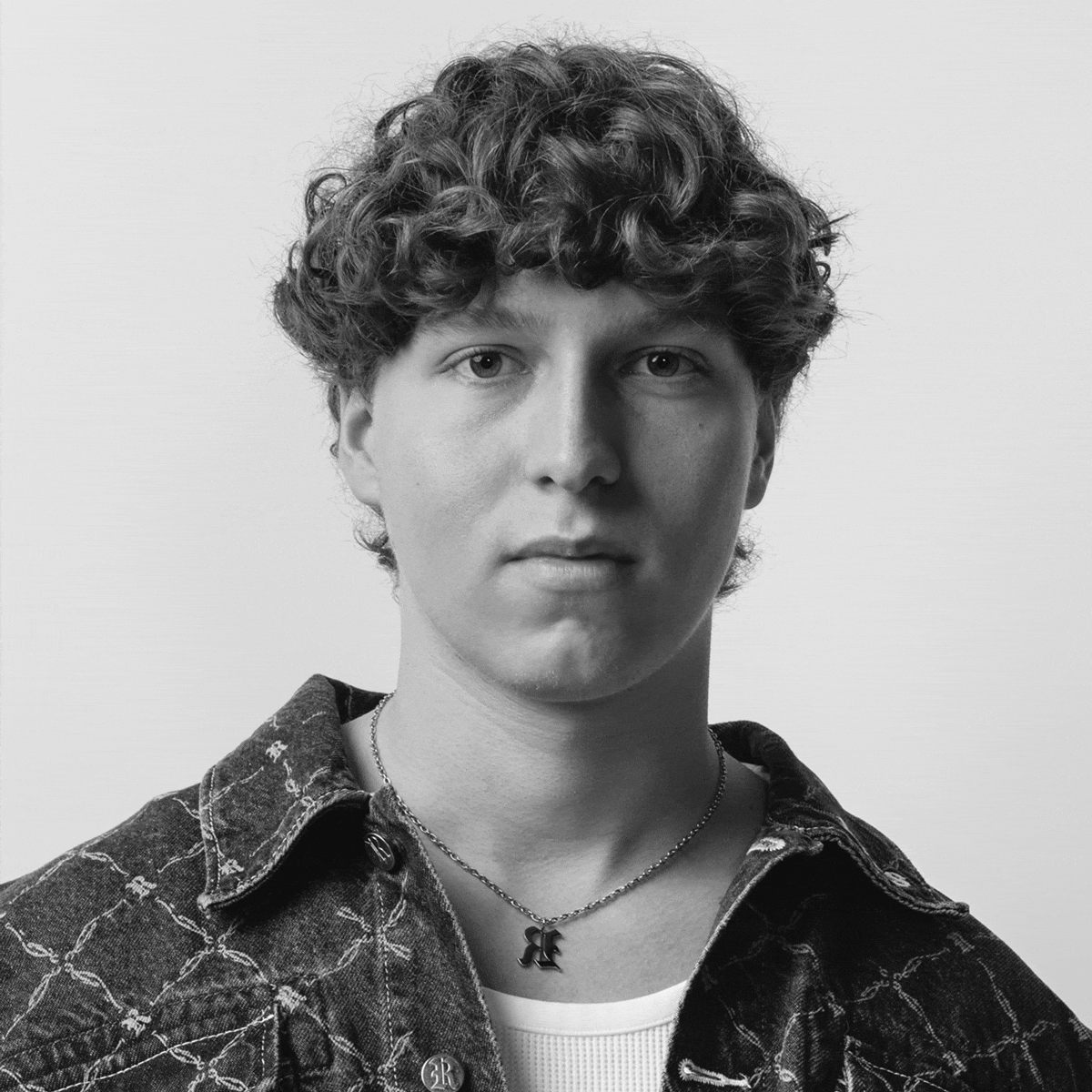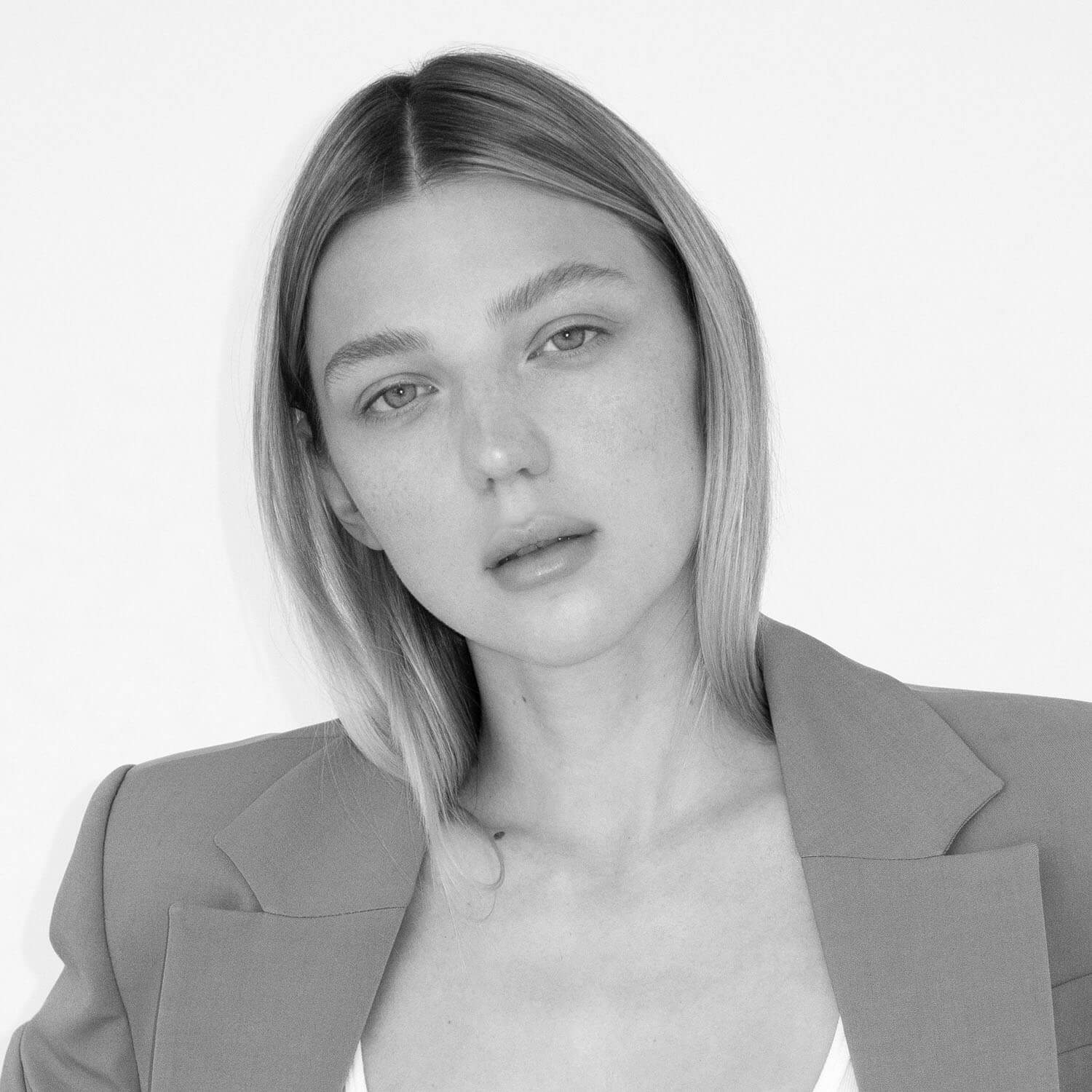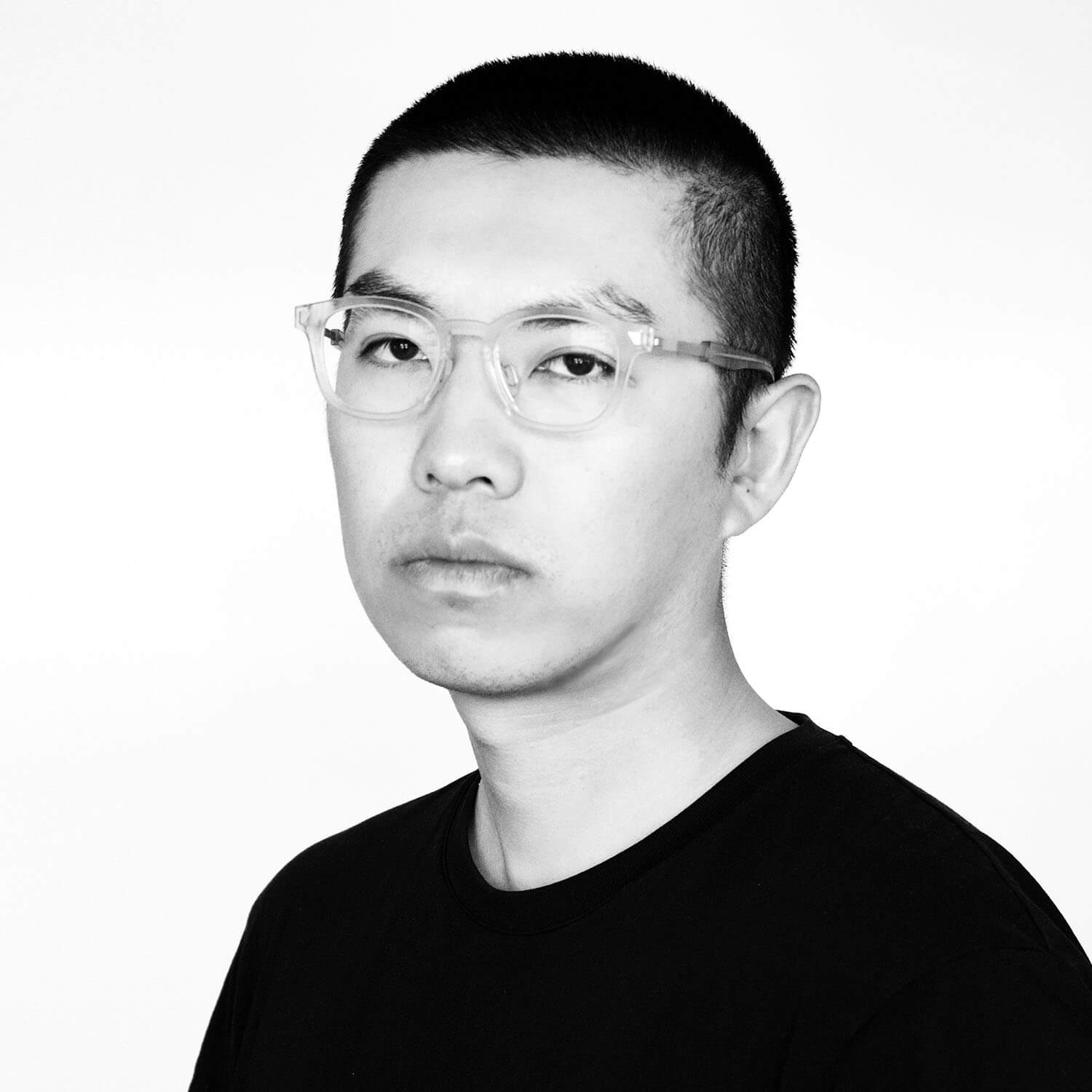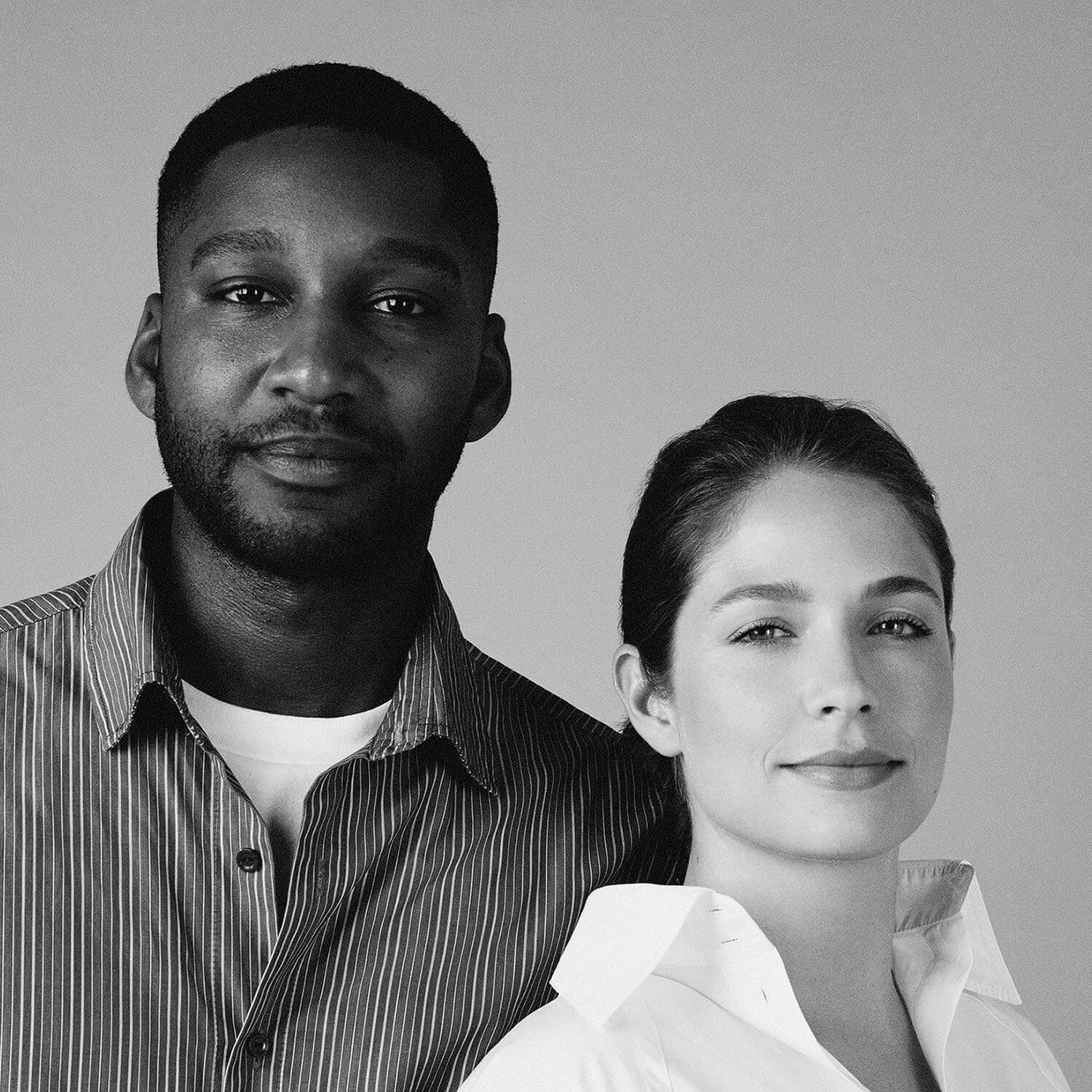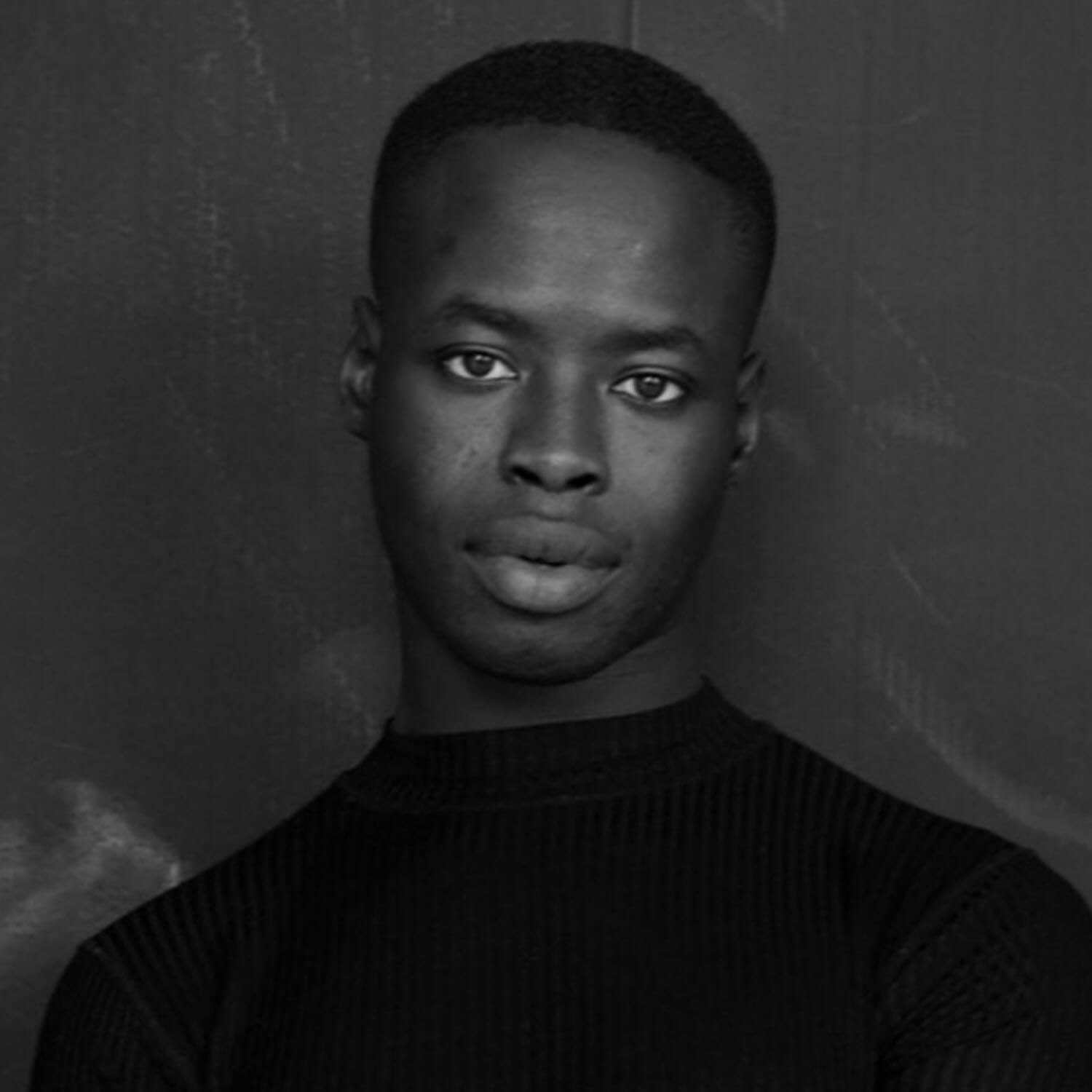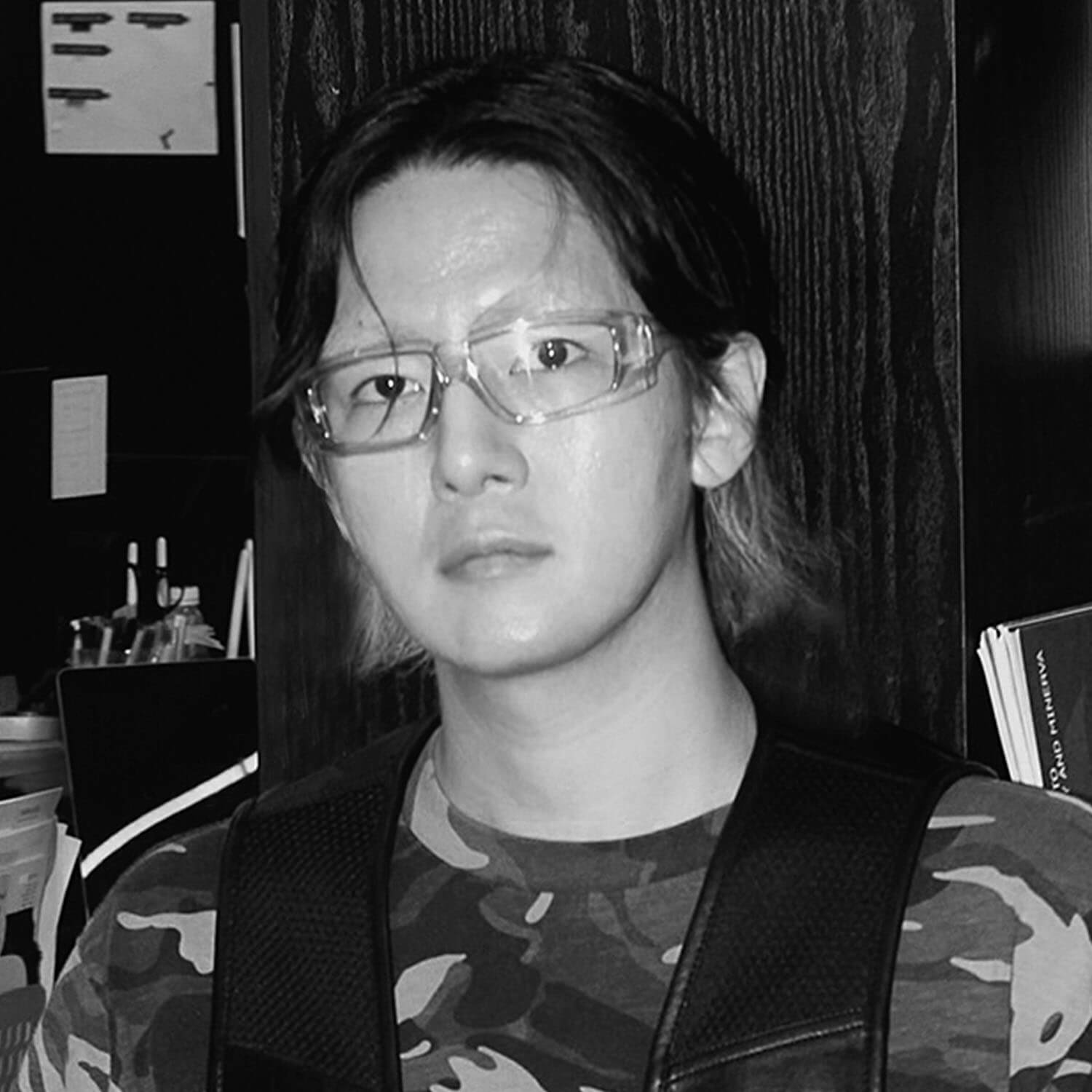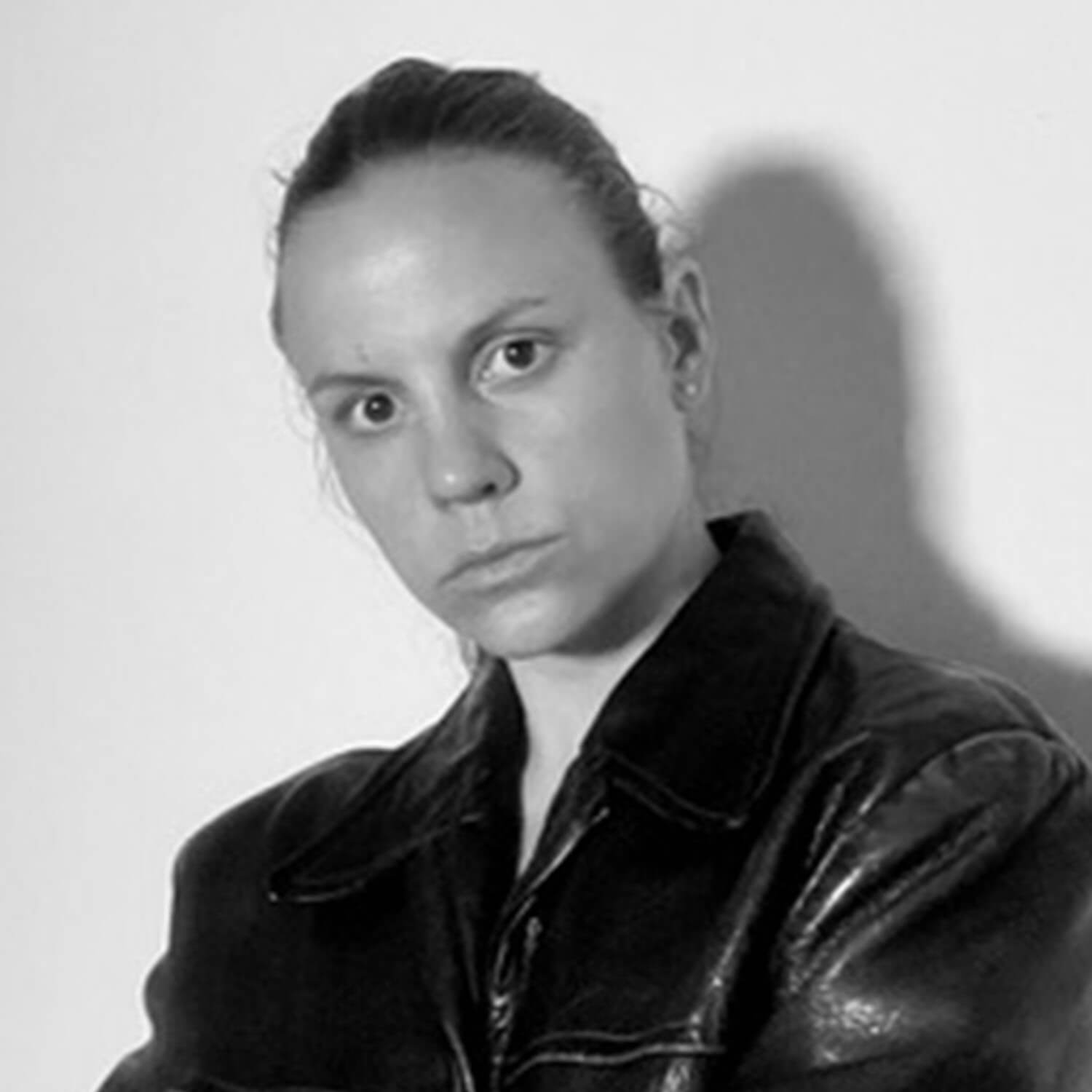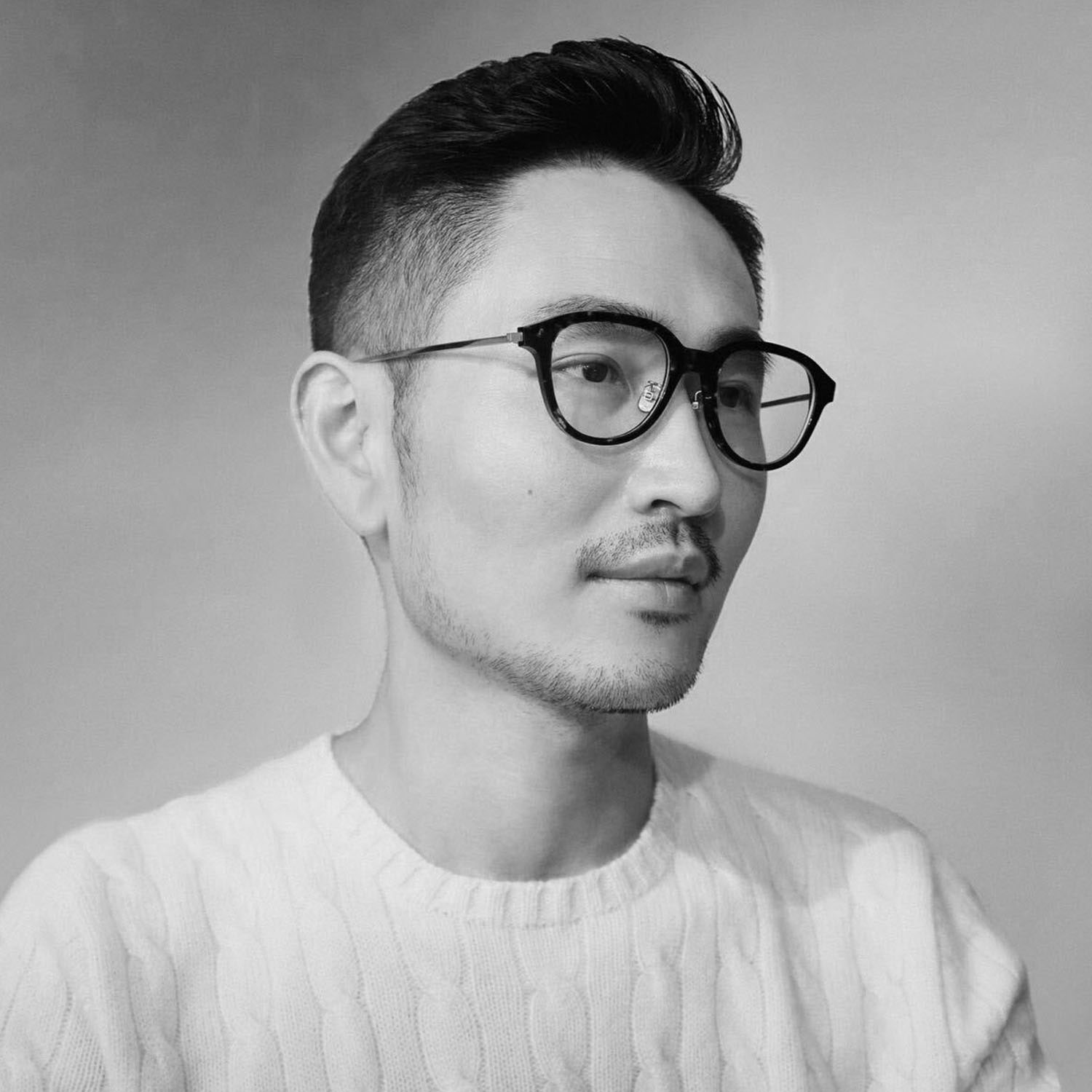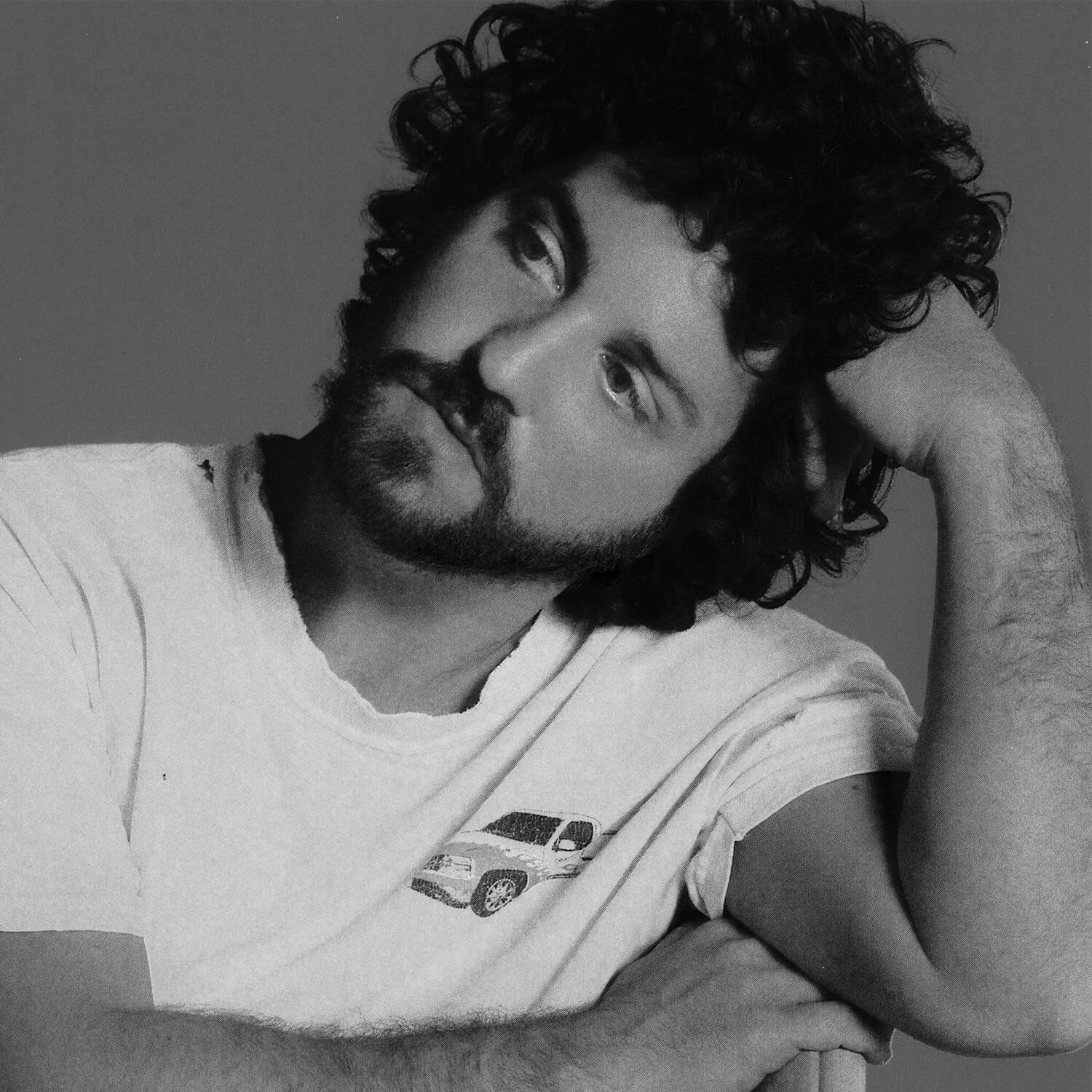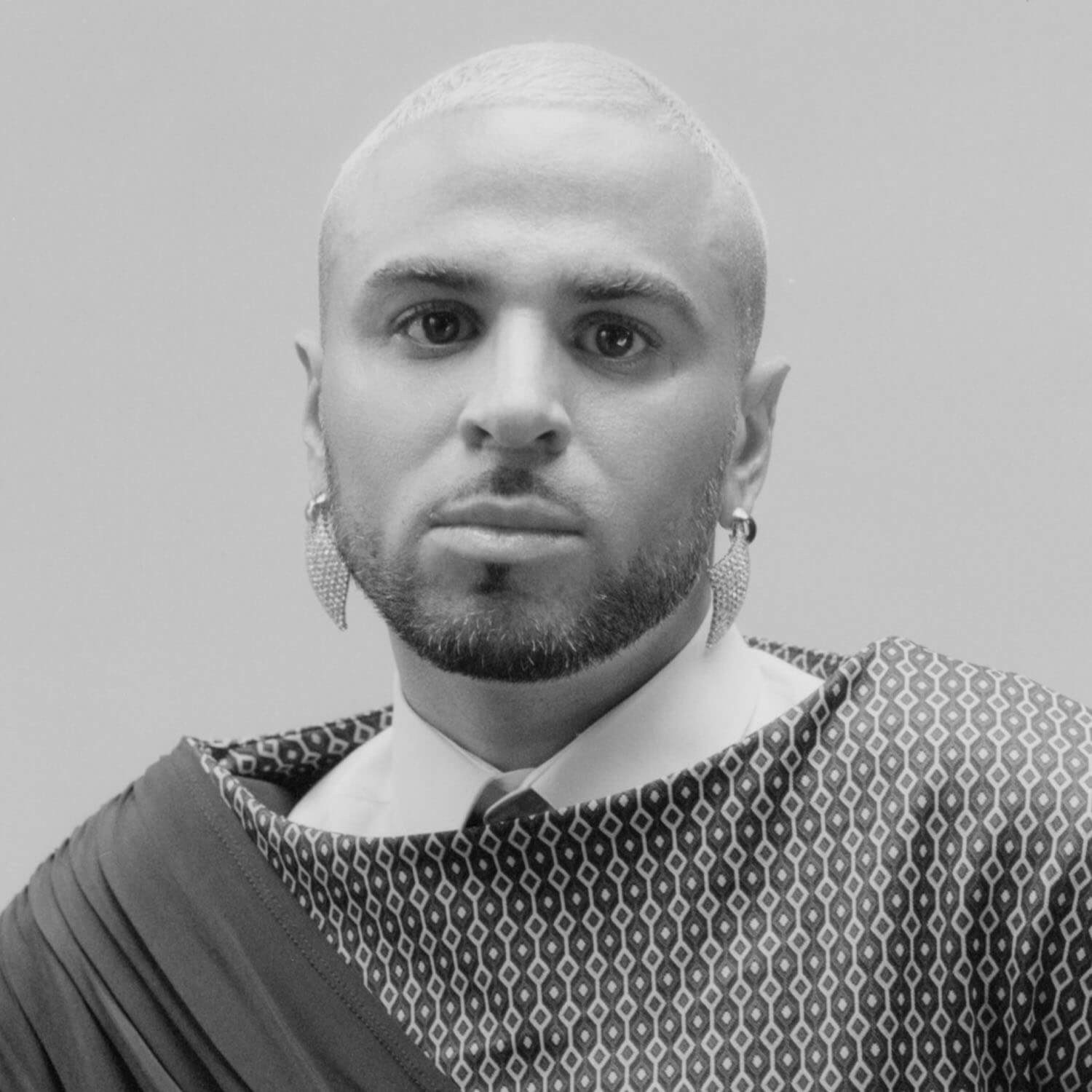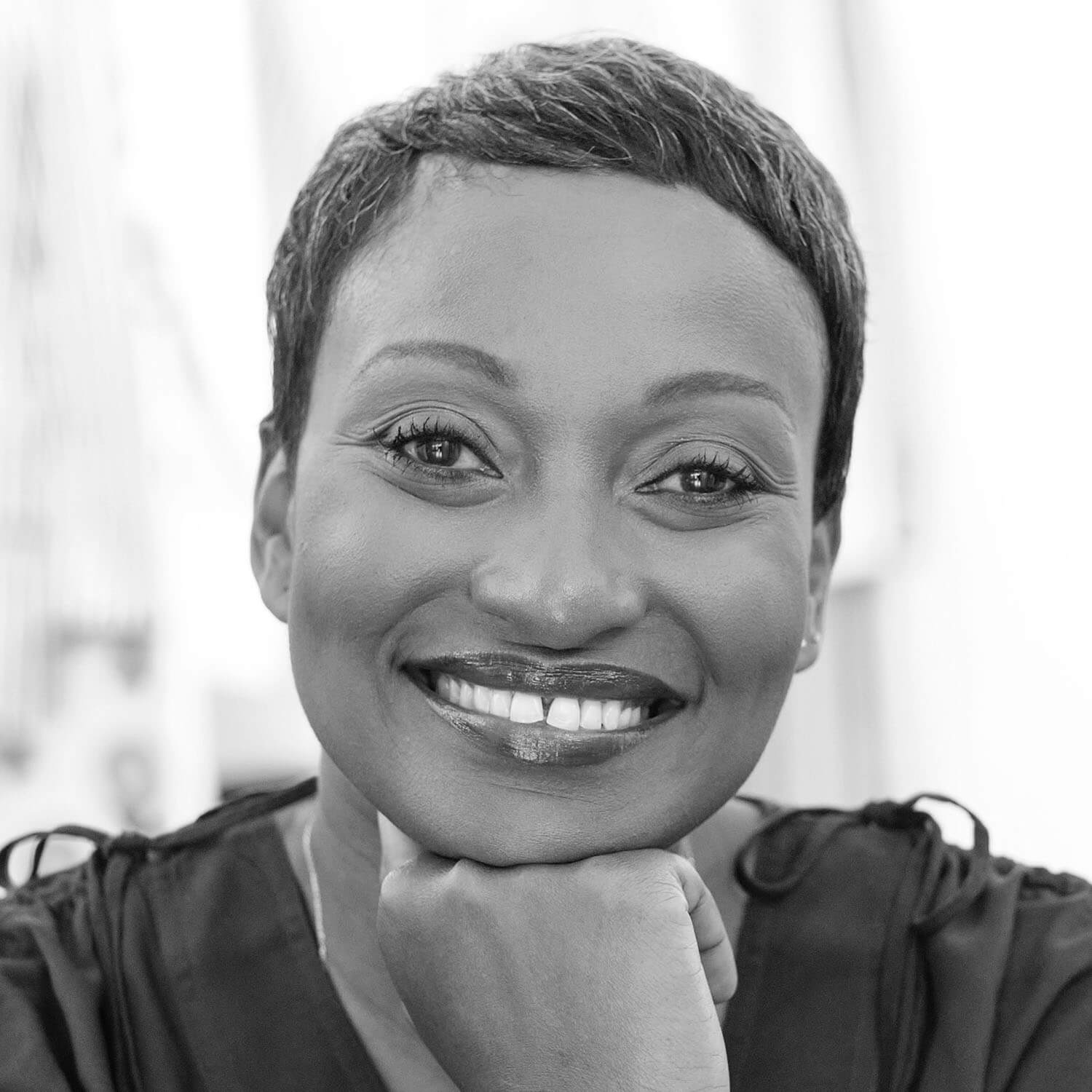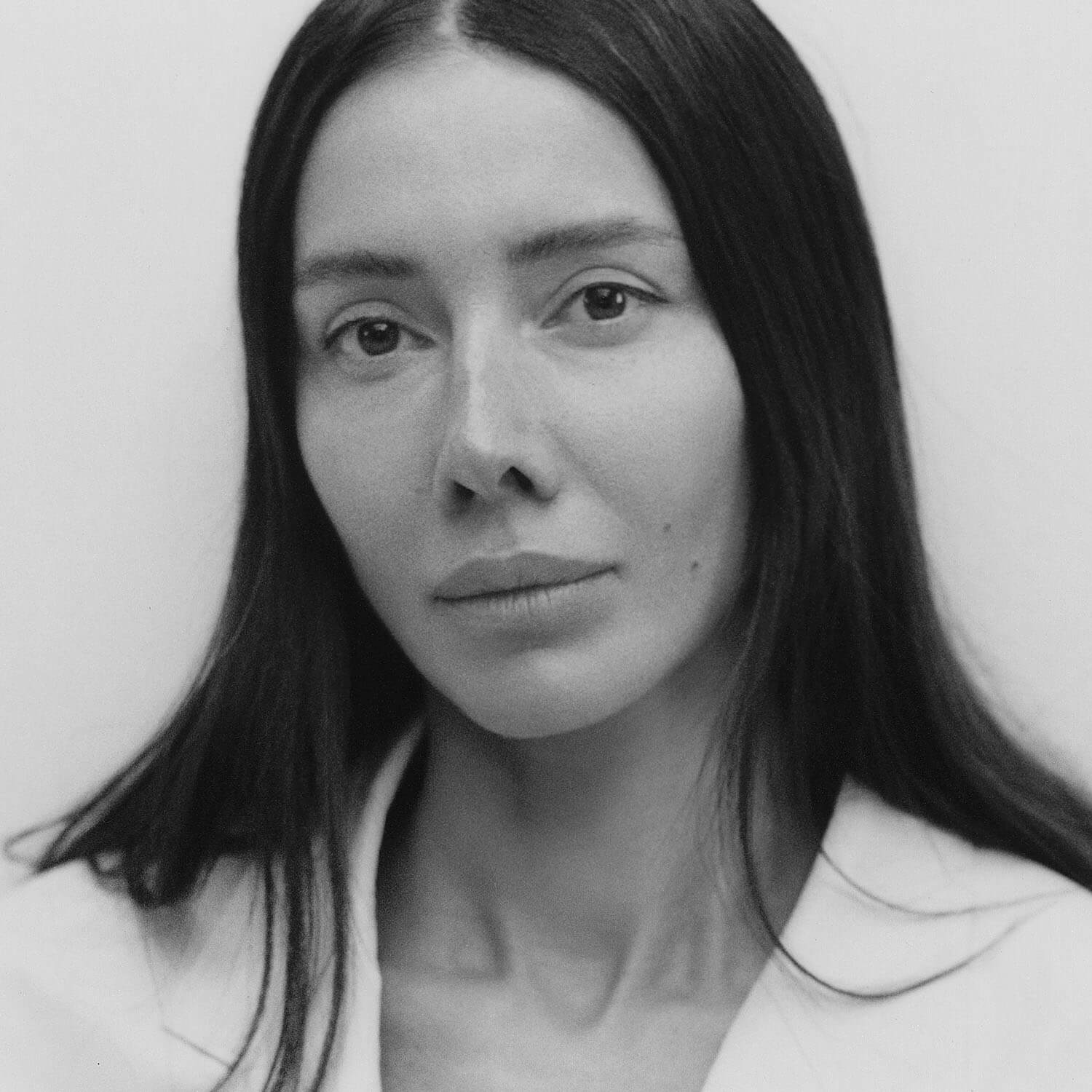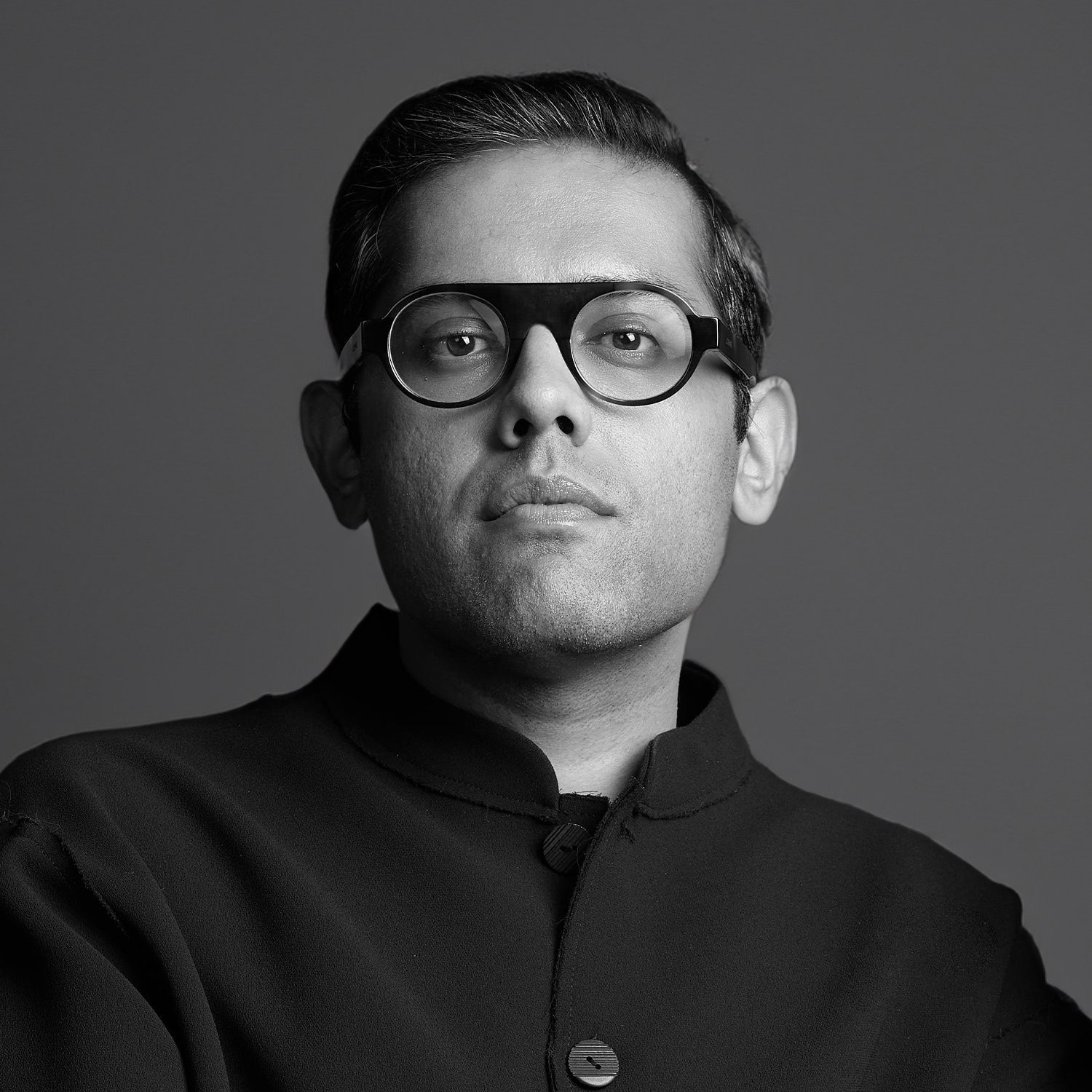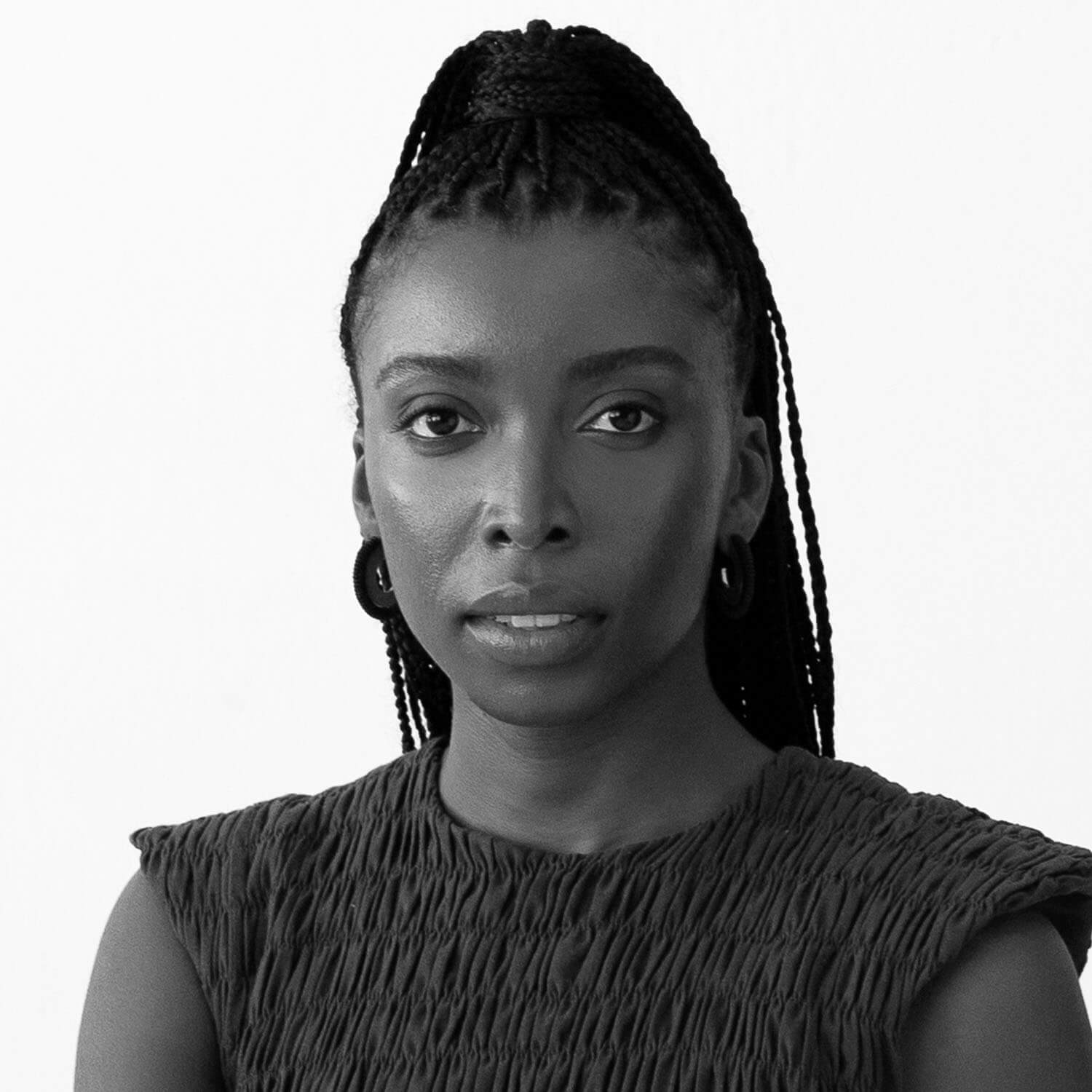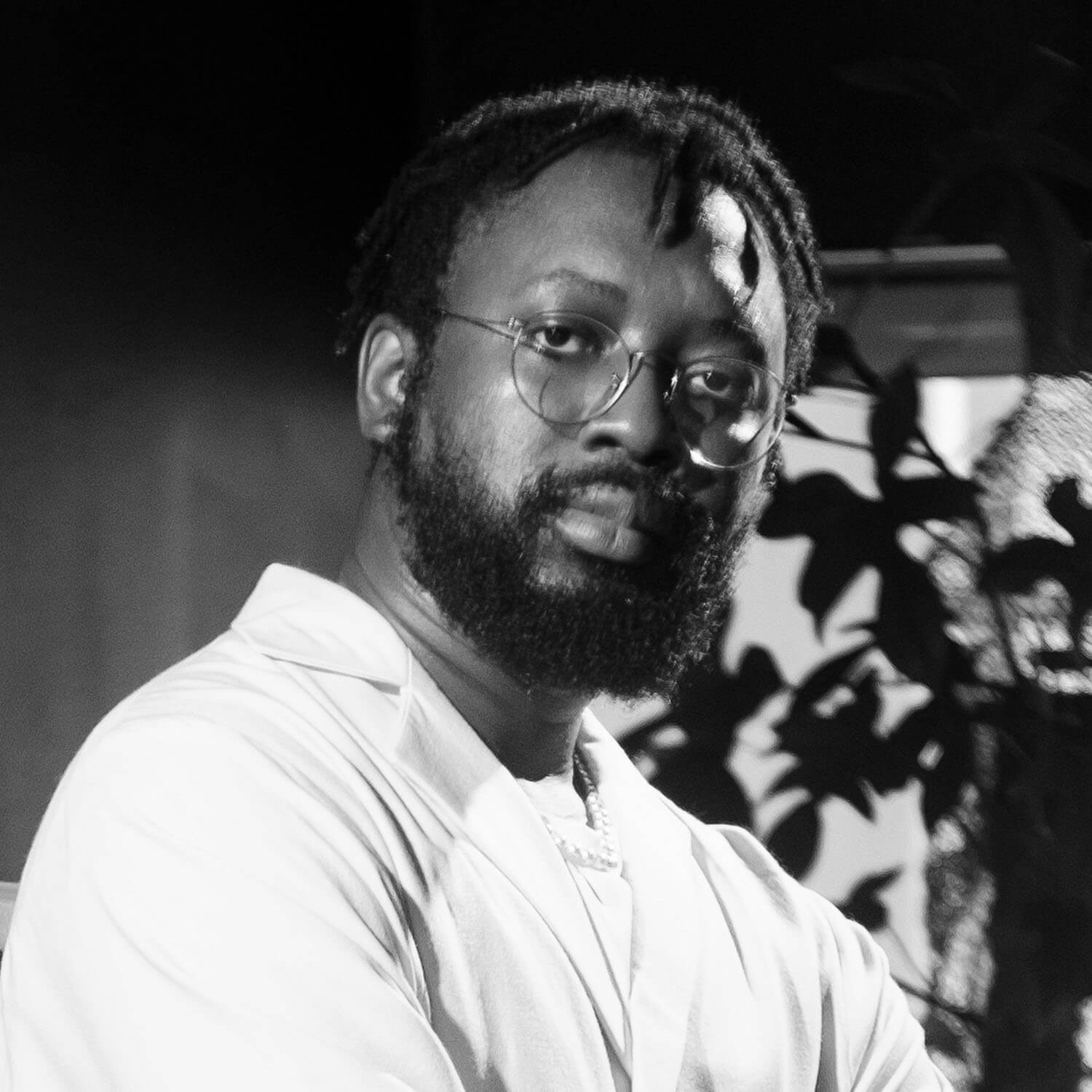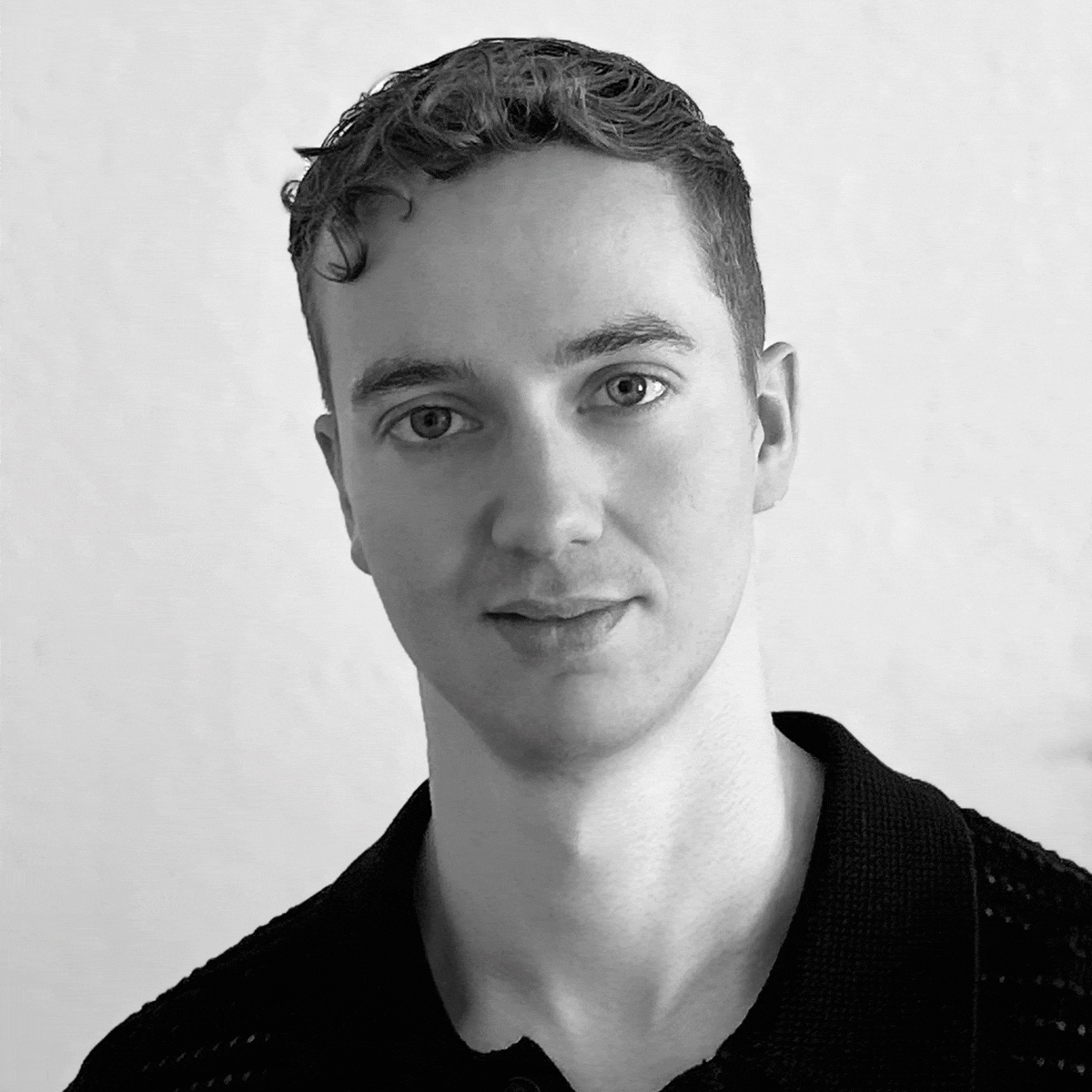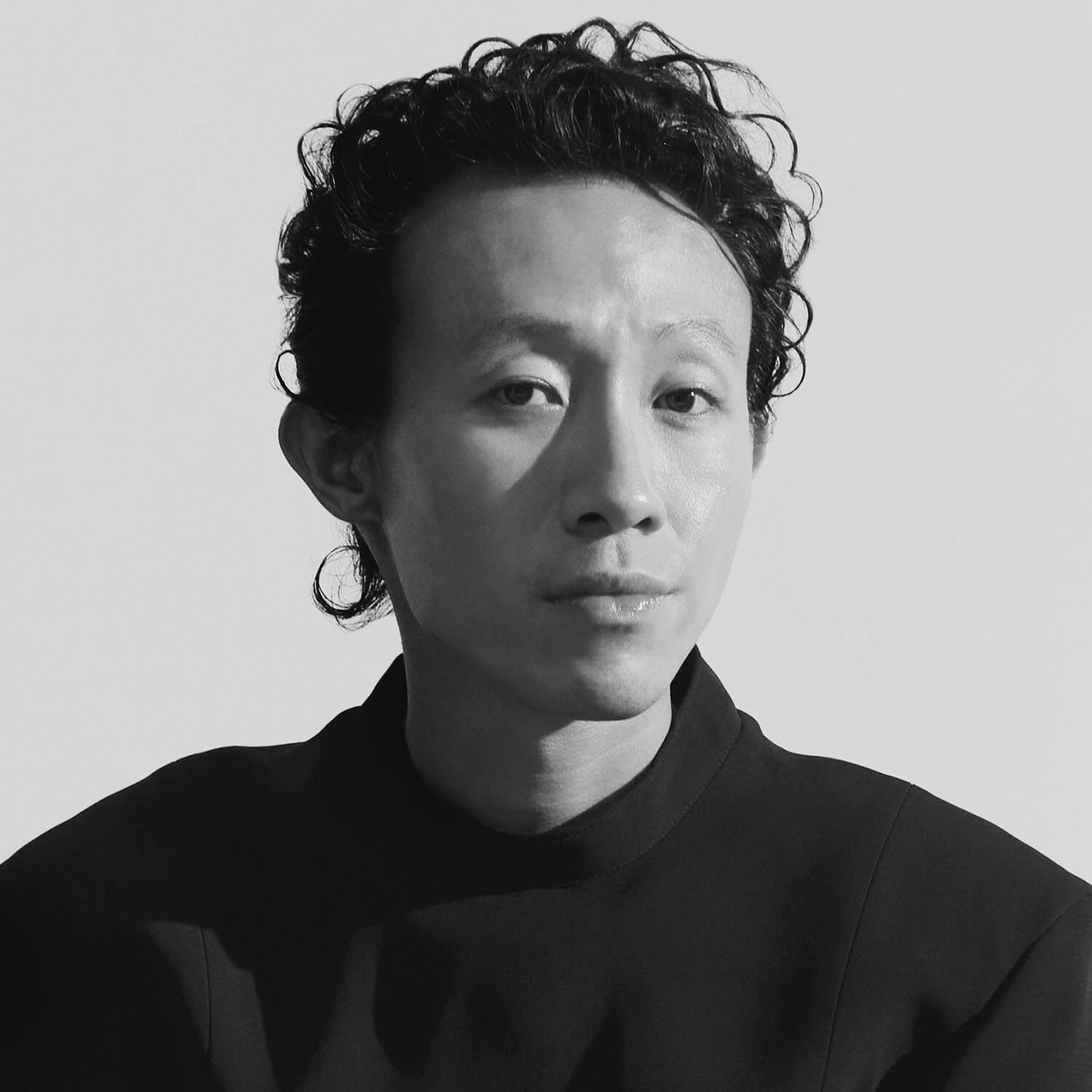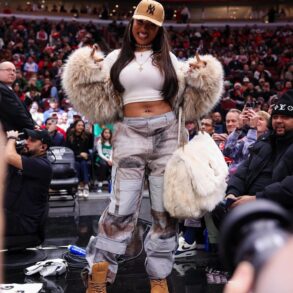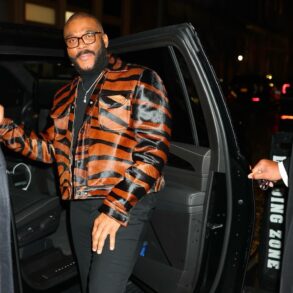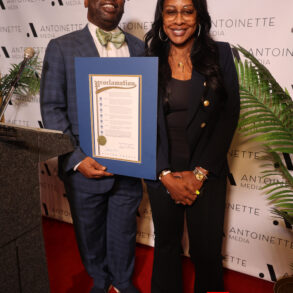This article is part of our Vogue Business Membership package. To enjoy unlimited access to Member-only reporting and insights, our NFT Tracker, Beauty Trend Tracker and TikTok Trend Tracker, weekly Technology, Beauty and Sustainability Edits and exclusive event invitations, sign up for Membership here.
Fashion’s future codes can be found in the fabric of the designs created by the rising class of creatives, many of whom have set out to change the status quo. These designers, business leaders and founders represent the next wave of leadership as they redefine what success in the industry looks like. Through their companies, their clothing and their stories, a new vision for fashion shines through.
Salehe Bembury
Footwear designer
By creating some of the world’s most in-demand shoes, American designer Salehe Bembury has achieved a rare feat: making his name in an industry dominated by heritage labels, and while specialising in footwear. Bembury began his career in 2009, taking on roles at discount footwear chain Payless and shoe brands Cole Haan and Greats. In 2015, he went on to design men’s footwear for Kanye West and his Adidas collaboration brand Yeezy and played an instrumental role in developing the Boost 350 V2 and Boost 750 styles. In 2017, he joined Versace and positioned the brand at the centre of the luxury sneaker boom before going solo at the end of 2020. A year later, he embarked on a new collaboration with Crocs, creating shoes that led to the brand’s fastest-ever sell-through. In April 2023, Bembury was named by Crocs as creative director of its Pollex Pod collection. The designer was also selected by Moncler to collaborate on a Genius collection. The industry is closely watching what coveted shoe style Bembury will invent next and whether he will launch his own namesake brand.
Frederica Brooksworth
Executive director | Council for International African Fashion Education
The movement to decolonise the fashion industry and diversify the fashion curriculum is gathering pace. Among those attempting to ensure that the next generation of fashion designers has a deeper understanding of the industry’s history and influences is Frederica Brooksworth, a British-Ghanaian academic, researcher and author. She founded the non-profit ‘think-and-do’ tank Council for International African Fashion Education (CIAFE) with the aim of improving research around African fashion and textiles, and ensuring that academic institutions on the continent have direct access to that research. Brooksworth is also the regional editor for Africa for Bloomsbury Fashion Business Cases, which is intended to create a better link between the fashion industry and education by providing case studies and access to materials including insight on sustainability, technology, ethics and leadership.
Dan Colen and Daphne Seybold
Co-founders | Sky High Farm Workwear
In 2022, artist Dan Colen and former Comme des Garçons PR executive Daphne Seybold founded Sky High Farm Workwear, a unique fashion label that uses a portion of profits to fund Sky High Farm, a 401(c) non-profit farm founded by Colen, that donates its produce to disadvantaged New York Families. Sky High Farm Workwear is part of the Dover Street Market Paris brand incubator, and works closely with the retailer to sell its collaborative collections, including tie-ins with Balenciaga, Converse and Comme des Garçons. While major fashion brands typically launch foundations or ESG side projects to improve their social responsibility status, Sky High Farm Workwear is a new kind of fashion label that uses creativity and consumption to generate profit for a charitable organisation.
Erica De Greef and Lesiba Mabitsela
Co-directors | The African Fashion Research Institute
The African Fashion Research Institute aims to improve the industry’s access to research, academic papers and material by creating a community for fashion leaders to share their insights and knowledge online — which can be used for everything from curricula to general public interest. The Cape-town-based institution was set up by fashion curator, activist and researcher Erica de Greef, who has worked in the fashion industry for over three decades, and Lesiba Mabitsela, who is currently a research assistant at Zeitz Museum of Contemporary Art Africa, one of the largest non-profit museums of contemporary art from Africa and its diaspora. Greef is a senior curator for fashion at the museum.
Julian Fesenmeier and Tobias Plankensteiner
Co-founders | Rare Humans
Austrian brand Rare Humans shot to prominence this year after videos emerged of teenagers running around the streets of Vienna to find its latest drop, creating a frenzy only the most buzzworthy brands are capable of. Known for its slogan T-shirts, baggy denim and printed jackets, the brand is designed by and for young people. Founders Julian Fesenmeier and Tobias Plankensteiner met at school in Austrian town Schwarzach. Aged 16, they aspired to launch a brand, took some business courses and taught themselves how to sketch designs. When they graduated from school, while their friends went to Vienna to university, they stayed back and launched Rare Humans in 2021. Rare Humans is now a seven-figure business, with sales up 98 per cent from January to June 2023. Key markets include Germany, Austria, France and Italy.
Mary Furtas
Founder and creative director | Cult Naked
When Mary Furtas launched her partywear label Cult Naked in 2018 in her native town of Lviv, Ukraine, she had no idea she’d end up running a brand in the shadow of war. Originally a made-to-order, direct-to-consumer business, Cult Naked e-commerce orders were produced on demand by local seamstresses to keep overproduction to a minimum. Since the war in Ukraine broke out in 2022, Furtas pivoted her business to survive and scaled from $700,000 to over $2 million in sales from 2021-2023, a significant run rate for a Ukrainian brand. She also developed a wholesale network alongside the DTC, so customers in other markets can still access Cult Naked despite major shipping delays from Ukraine. Her business continues to grow despite ongoing challenges, and as an influencer herself, she continues to be a loud voice for Ukraine in the fashion community, sharing her personal experience and news from her native Lviv with her 56,000 Instagram followers.
Li Gong
Founder and creative director | 8ON8
In 2017, while pursuing his master’s in menswear at prestigious British fashion school Central Saint Martins — after earning his undergraduate degree from the London College of Fashion — Li Gong founded his brand 8ON8. Since then, he has emerged as one of China’s most promising creative talents. Gong has built a profitable business that balances commerciality and creativity, including several successful collaborations with international brands such as Asics, Canali and Disney. In 2021, the brand received RMB 10 million (£1.1 million) in equity investment from Chinese fashion company Peacebird. Gong is interested in the intersection between fashion and technology, and last year was one of the featured artists in Vogue’s Meta-Ocean project, which showcased the possibilities of 3D digital design.
Lisi Herrebrugh and Rushemy Botter
Co-founders and designers | Botter
The founders of Antwerp-based luxury label Botter, Lisi Herrebrugh and Rushemy Botter, launched their now-genderless label in 2017. Their collections highlight the possibilities of material innovation, such as the ability to create garments from natural fibres made using algae or sea kelp. The duo took home the Andam Grand Prize in 2022 and are using the funding to scale up their business and explore further material innovation. During the pandemic, Botter teamed up with (Rushemy’s native) Curaçao’s local government and local dive company Curious 2 Dive to launch the Botter Coral Nursery, where portions of the coral reef bleached by ocean pollution and global warming are cultivated back to health. This unique project chimes with a new wave of brands embedding social impact into their businesses and using fashion profits for good.
Ibrahim Kamara
Artistic director and editor-in-chief | Off-White and Dazed
Known principally for leading fashion magazine Dazed, in May 2022, Ibrahim Kamara was named the art and image director of Off-White, the fashion brand founded by the late Virgil Abloh. His debut collection in September of that year, for SS23, caused a stir in Paris — large crowds gathered outside the venue, and celebrities including model Naomi Campbell and musician Erykah Badu sat on the front row. Kamara, who has previously styled for Off-White, was brought in to oversee the brand’s art and creative of the brand in its next chapter and was described as a “great honour” by former Off-White CEO Andrea Grilli.
Before his appointment, Kamara had been building a reputation in the industry through his work at Dazed, first as fashion editor-at-large in 2018 — where he brought a new perspective to the fashion industry by unapologetically exploring the intersections between culture, race, gender and sexuality — and latterly as editor-in-chief, a position he’s held for over two years. Under his leadership, Dazed covers have featured the likes of musicians Rihanna, A$AP Rocky and Harry Styles, as well as spotlighting West African culture, including a cover featuring Sierra Leone’s amputee football team (Kamara is from Sierra Leone) or models in a market in Senegal. As an independent stylist, he has worked with brands including Louis Vuitton, Labrum London (he styles all of the brand’s runway shows) and Burberry (styling its SS22 collection).
Dohun Kim
Founder and creative director | Andersson Bell
Seoul-born and raised, Dohun Kim is the founder and creative director of Andersson Bell, a promising South Korean label that is well-positioned to become the country’s next big fashion export thanks to its unique aesthetic. The brand stands out locally because it doesn’t ascribe to the 애교 (aegyo) or cutesy aesthetic that has long been prevalent in South Korea. It also stands out internationally by not following trends. Instead, its pieces nod to an amalgamation of Korean street style with a minimalist Scandinavian attitude — inspired by a 2014 trip to Stockholm, Kim’s first to Europe. In 2023, Andersson Bell staged its debut international runway show at Milan Fashion Week and opened a flagship store in Anguk-dong next to Seoul’s historical Gyeongbokgung palace. Fuelling the label is distribution support from Tomorrow, a fashion group and incubator that also works with Martine Rose and Charles Jeffrey among others, and an ongoing collaboration with buzzy sneaker label Asics since 2021. The brand, which has been profitable since launch, is currently present in 140 markets globally and brings in $15 million in annual revenues.
Ellen Hodakova Larsson
Fashion designer | Hodakova
Swedish designer Ellen Hodakova Larsson launched her label Hodakova in 2020 with a focus on highly technical and creative upcycling, transforming old bras or belts into dresses and handbags. The designer held her first runway show during the SS23 edition of Paris Fashion Week at the Swedish Fashion Council x Fashion East showroom. Aiming to scale responsibly, she produces small runs for a tight stockist list, including Selfridges, Ssense, Dover Street Market, Ginza and Antonioli. Because of her unique style, Hodakova has been approached by major luxury houses to help them create upcycled collections, including Gucci, who tapped her to create bags and garments from Gucci deadstock for its Gucci Vault continuum project in March.
Sanshou (Li Tao)
Founder | Zhizhi
After graduating from Bunka Fashion College and Donghua University, Sanshou Li founded the contemporary Chinese fashion brand Zhizhi in 2018 and has since grown it into one of the country’s biggest online success stories. What started as a brand sold primarily on Alibaba-owned platform Taobao, Zhizhi’s influence has grown beyond its online store thanks to Li’s passion for traditional Chinese culture and ability to modernise it for a contemporary audience. Li’s goal is to turn Zhizhi into a global luxury brand, starting with scaling up the business offline, sharpening the brand story and deepening customer relationships. Evidence that this work is in motion is coming: Zhizhi will open its first boutique store in the country next year.
Eli Russell Linnetz
Fashion designer | ERL
Eli Russell Linnetz is an American creative multi-hyphenate whose talents include directing, screenwriting, photography, music production and set design. What unites all of his interests — and what led him eventually to fashion in 2018 — is that they are forms of storytelling. The launch of Linnetz’s fashion label ERL, which champions a quirky Californian cool, was made possible by Comme des Garçons president Adrian Joffe, who asked Linnetz to create something for the opening of Dover Street Market Los Angeles. The resulting pastel corduroy shirts ended up selling out in a week, and ERL was taken under the wing of Dover Street Market Paris’s brand development programme. In May 2022, Linnetz staged his first-ever runway show in Los Angeles via a collection made in collaboration with Dior. Last year, he was also a joint winner of LVMH’s Karl Lagerfeld prize for young designers. In June 2023, Linnetz presented ERL’s first standalone show as the official guest designer of Pitti Uomo. Speaking to Vogue Runway ahead of the event, he expressed his future desire to work for a luxury fashion house. “I’ve told 0.1 per cent of the stories that I want to tell,” he said.
Raul Lopez
Founder and creative director | Luar
New York-based Dominican-American designer Raul Lopez initially rose to prominence as co-founder of New York label Hood by Air with Shayne Oliver. He then launched current label Luar as Luar Zepol (his full name backwards) in 2011. After a couple of false starts and pauses, Lopez returned to New York Fashion Week for SS22 in what he described as a “renaissance”. The collection was picked up by Nordstrom, and Bergdorf Goodman launched an exclusive capsule of his now-viral Luar Ana bag. Lopez went on to win accessories designer of the year at the CFDA awards in 2022. For AW23, he moved to the covetable closing slot of New York Fashion Week, where he’ll remain this season. For Lopez, fashion is about community. During the pandemic, the designer and his cousin raised money and delivered food to around 300 disadvantaged families in his native New York.
Maryse Mbonyumutwa
CEO and founder | Pink Mango and Asantii
Maryse Mbonyumutwa has her sights set on building the textile and manufacturing industry in Africa. In 2022, she co-founded Asantii, an affordable luxury brand, tapping leading names in the fashion industry including her business director Vanessa Anglin, who was previously VP of product development across womenswear, accessories and childrenswear at Burberry, and advisor Candice Fragis, former buying and merchandising director at Farfetch. Mbonyumutwa is also the founder of the Rwanda-based manufacturing site Pink Mango, which aims to help fashion brands in Africa and across the world to reduce their reliance on manufacturing in the Far East and improve the textile and garment manufacturing industry in Africa. The site employs over 4,000 staff and provides a nursery for children.
Julie Pelipas
Founder and creative director | Bettter
In 2020, former fashion director of Vogue Ukraine and influencer Julie Pelipas decided to pivot her career, recognising the overproduction and waste that fashion creates. Her tailoring brand Bettter, launched in 2020, aims to work as a scalable upcycling system, using automation and consistent patterns to transform men’s suiting into womenswear. Each suit is sourced from factory deadstock or secondhand markets and manufactured in the founder’s native Ukraine. Since the war began in Ukraine, Pelipas also launched the Bettter.Community platform (via givenname.community online), to connect her native country to the wider world and to support Ukrainian businesses. Pelipas won the BFC leaders of change award in 2022, for those who have led change by encouraging equal, diverse, empowered workforces from head office to supply chain and shop floor. She was an LVMH Prize finalist this year.
Shivam Punjya
Founder | Behno
In 2012, while in India completing research for his MSc in global health at Duke University, in North Carolina, Shivam Punjya learned about the low wages and poor working conditions of textile workers in the country. Not long after, the world witnessed the Rana Plaza tragedy. This prompted Punjya to look at how to improve worker conditions back home in the US. After further research, in 2015, he founded The Behno Standard to advocate for a new way of garment production that ensures artisans are seen as stakeholders (Behno in Hindi means sisters). The standard is broken down into six categories: health; garment worker mobility; family planning; women’s rights; worker satisfaction and benefits; and eco-consciousness — principles that are at the backbone of his brand Behno. Beginning as a ready-to-wear label with a minimalistic aesthetic in 2015, Behno pivoted to become a handbag brand in 2019. Today, Behno is known for timeless fine leather handcrafted bags. Punjya recently relocated the brand’s operations to India, where its manufacturing was already based.
The pandemic proved to be a game changer for the independent brand, with most sales coming from its own direct-to-consumer channels with an increased interest from South Asians. While the brand is made in India, until this year it had no distribution channels in the country and is currently available through Indian e-commerce store Tata Cliq Luxury, with plans to open in physical stores and across other platforms. Earlier this year, Indian film actor Katrina Kaif became an investor in and an ambassador for the brand, which was previously a family-funded operation.
Amira Rasool
Founder and CEO | The Folklore Group
In 2018, after graduating from Rutgers University with a degree in African American and African studies and completing her master’s in African Studies at the University of Cape Town, 22-year-old Amira Rasool set out to build the ‘LVMH of Africa’. The aim was to spotlight the premium craftsmanship and textile production coming out of the region in order to boost the representation of Black and African businesses across the fashion industry. She founded The Folklore, an e-commerce site connecting luxury African and diasporic brands to consumers in international markets, including the US and UK. Four years after it launched, the brand restructured into a larger organisation and established new pillars including a B2B offering. Its wholesale platform, The Folklore Connect, provides technology for brands to manage their wholesale business and provides retailers with a marketplace to discover and shop these brands. Last year, Rasool raised $1.7 million in a pre-seed funding round led by Slauson & Co, an inclusive early-stage venture capital firm, which was used to help transition into the B2B model.
Adeju Thompson
Founder and creative director | Lagos Space Programme
This year, Adeju Thompson became the first African designer to win the prestigious International Woolmark Prize for his contemporary ready-to-wear brand Lagos Space Programme. He launched the brand in his native Nigeria in 2018 with the aim of creating a successful fashion brand that speaks to queer communities in and outside of the country through his genderless approach to design as well as incorporating Adire (or Post-Adire as Thompson calls it), an ancient indigo-dyeing technique used in Nigeria, as a method of storytelling. The symbols, objects and motifs carry meaning that speaks to certain communities and groups, he previously told Vogue Business. Now, after winning Woolmark’s £107,000 prize money, Thompson is gearing up to turn his brand into a profitable and international business and share his Nigerian culture with the world. Lagos Space Programme was also a semi-finalist for the LVMH Prize in 2021.
Jules Volleberg and Ying Suen
Co-founders | APOC Store
At a time when major retailers are pulling back on emerging designer orders, making it harder than ever to scale a fledgling brand, fashion retail masters graduate Jules Volleberg and design graduate and community arts consultant Ying Suen are hoping to change the system with startup Apoc Store. The duo met following their studies, working at a London retailer. Launched in 2021, Apoc is a marketplace designed to support the growth of young designers and artists by connecting them with customers. For the brands, there are no order minimums, no strict delivery windows and the designers, once selected for the site, choose what they sell and ship directly from their studios. The artists and designers are then paid fair commissions to help them grow their independent businesses, offering a new blueprint for luxury fashion retail that prioritises young talent.
Robert Wun
Fashion designer
In the almost 10 years since launching his namesake label, Hong Kong-born, London-based couturier Robert Wun has dressed countless celebrities including Cardi B and Letitia Wright, won the Andam special prize, and had his work displayed at the Savannah College of Art and Design (SCAD) Museum of Fashion and Film, in Atlanta, Georgia. In January 2023, he presented his first runway show as part of Paris Haute Couture Week — a milestone moment that was made possible with the rare support of Chanel’s fashion president Bruno Pavlovsky. The show came a year after Wun first pivoted away from ready-to-wear, pausing wholesale entirely in favour of custom orders for his richest clients. Now, the business is on track to make £1.5 million in sales by the end of the year. Wun also plans to expand into bags, footwear and jewellery with the manufacturing support of Chanel’s factories in southern France.
Comments, questions or feedback? Email us at feedback@voguebusiness.com.
This post was originally published on this site be sure to check out more of their content.




